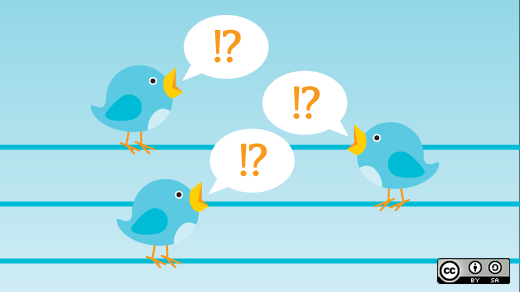
I’ve been thinking a lot about scholarly engagement on Twitter lately, especially after reading Bonnie Stewart‘s latest blog post, “The morning after we all became social media gurus.” Based on her research and writing for her thesis, she weighs exactly what we as academic librarians and LIS professionals are getting out of digital scholarly engagement and how we measure that influence in terms of metrics. I’d like to unpack this topic a bit and open it up to a wider reader discussion in the comments section, after the jump!
Debating the merits of networked scholarship via Twitter is a topic that has been bouncing around in journal articles and blog posts for the past 8 years or so. But as notions of scholarly publication and information dissemination change, it’s worth returning to this topic in order to assess how our presence as academic librarians and LIS professionals is changing as well. Addressing social media training in her blog post, Stewart poses the question, “Are the workshops helping…or just making people feel pressured to Do Another Thing in a profession currently swamped by exhortations to do, show, and justify?” I am both a lizard person Millennial and early-career librarian, so navigating through Twitter is easy for me, but not in the sense of establishing myself professionally. I feel that I’ve only just gotten the hang of professional information dissemination, and am learning more every day about how what we as information specialists tweet out reaches others in our community and what we get back from that.
But how do we understand and frame the practical benefits of digital and networked scholarship through Twitter specifically? The amount of times a single tweet is cited? How many followers, retweets, or favorites a professional has?
The pros of using Twitter as a form of scholarly networking are very clear to me – being able to contribute to the conversation in one’s field, creating new professional connections, and having an open venue in which to speak on scholarly matters – to name a few.
But the more tangential aspects are where it gets a lot grayer for me. How do we view ownership of tweets and replies to tweets? Does the citation of a viral tweet hold as much weight as a citation to an article published in a scholarly journal? How do we weigh the importance of scholarly tweets when we sometimes have to parse them out between the pictures of our pets being adorable? (I mean personally I see them as being equally important.)
This is all to say that if and/or when Twitter and other social media venues become a default environment for digital scholarship, should there be more of an effort to incorporate social media and networked scholarship as the norm that all “successful” LIS professionals should be doing, or is this just another signifier of the DIY-style of skill-building that librarianship is experiencing today as Erin Leach has written in her blog post? Should academic institutions be providing more workshops to train and guide professionals to use Twitter as professional development? What is the mark of a truly connected scholar and information specialist? I have a lot of questions.
I’ll round out my post with a quote from Jesse Stommel from his presentation New-form scholarship and the public digital humanities: “It isn’t that a single tweet constitutes scholarship, although in rare cases one might, but rather that Twitter and participatory media more broadly disperses the locus of scholarship, making the work less about scholarly products and more about community presence and engagement.” Community presence and engagement are such important factors in how I see academic librarians, LIS professionals, and information specialists using Twitter and connecting in the field.
So to open this up to you the readers, how do you measure your digital identity as a scholar or professional? How much weight do you give to digital networked scholarship?
Pingback: To tweet or not to tweet: scholarly engagement ...
Pingback: Latest Library Links 3rd October 2015 | Latest Library Links